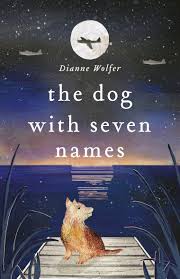My earliest memories are of being shoved and trampled by little paws. I was the runt, the last pup of our litter, and I struggled to reach my mother's warm milk. When I rolled out of our birthing box onto the verandah, I was too weak to climb back in. Wings flapped around my still-closed eyes. I felt pecking and smelt the sharp scent of blood ...
If Elsie hadn't found me I might not have survived. She shooed away the crows and held me close. Elsie's dad was Boss of the cattle station. He was a big man. My brothers and I soon learnt to smell his anger and stay clear of his hard boots. My mother was his favourite dog, but the Boss had no time for a runty pup.
'Weaklings don't survive in the Pilbara,' he snarled whenever I got in his way.
My mother was an Australian terrier, not your average cattle dog, but she was a better herder than any kelpie or heeler. The Boss boasted that Mother was fearless; she wasn't afraid to get among a mob of angry cattle. But Mother was also old and she'd had many pups before us. Our mouths and paws exhausted her.
Mother died soon after my eyes opened on a day called Melbourne Cup, while the humans were cheering for their favourite horses. The Boss blamed us. He kicked our box off the verandah and the crows flapped closer. My brothers scurried under the verandah. I was slower.
Elsie saved me again. She whispered words of love into my tiny ears and trickled milk onto my tongue. My life hung in the balance, but Elsie was patient. She was sure I'd live because the horse winner, Rivette, was a small female like me. Elsie was like that, she loved looking for connections.
'Be brave,' she told me. 'Remember Rivette, the first mare to win the Cup.'
Station life was hard, but I knew nothing else. My brothers grew strong. They were soon taken by stockmen who'd seen my mother's herding skill. Our father was a wild dingo, but the stockmen didn't care. They said dingo blood would make us tough. ‘Take the little one too,' the Boss urged, but no one wanted me. No one except Elsie.
Elsie's mother complained that 1939 was a difficult year, what with the drought and War (whatever that was). The Boss said there was no money for extras. Not even at Christmas. Maybe that's why he gave in to Elsie's pleading.
On Christmas morning the Boss lifted me by the scruff of the neck and dumped me in an old kerosene tin. He carried me in from the outside kennel and tucked me under a strange sparkly tree. When Elsie saw me, she danced and I smelt her joy.
‘Now that you’re mine, I can give you a name.’ She hugged me to her chest. ‘I’ll call you Princess.’
